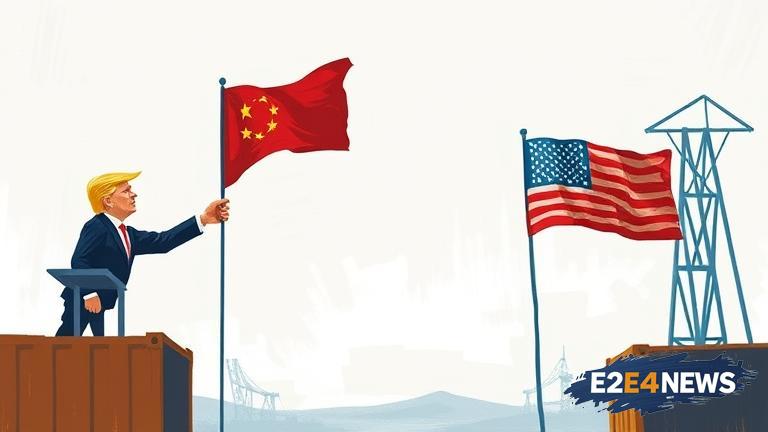The Trump administration has recently imposed tariffs on copper imports, citing national security concerns. This move has been met with criticism from various stakeholders, including lawmakers, industry experts, and trade partners. The tariffs are part of a broader effort by the administration to protect domestic industries and reduce reliance on foreign imports. However, critics argue that such measures could lead to retaliatory actions from other countries, potentially harming US businesses and consumers. The copper industry is a significant sector, with the US relying heavily on imports to meet its demand. The tariffs are expected to impact various industries, including construction, electronics, and renewable energy. The administration’s national security concerns are centered around the idea that reliance on foreign copper imports could compromise US defense capabilities. However, experts argue that this concern is overstated, and that the tariffs will ultimately harm US businesses and consumers. The move has also been criticized for its potential impact on the global economy, with some warning of a potential trade war. Despite these concerns, the administration remains committed to its trade policies, citing the need to protect domestic industries and reduce trade deficits. The tariffs have also sparked debate on the role of Congress in trade policy, with some lawmakers calling for greater oversight and scrutiny of the administration’s actions. The US has a long history of imposing tariffs on imports, with mixed results. While some argue that tariffs can be an effective tool for protecting domestic industries, others argue that they can lead to unintended consequences, such as higher prices and reduced economic growth. The impact of the tariffs on the copper industry will be closely watched, with many expecting significant price increases and potential disruptions to supply chains. As the global economy continues to evolve, the US must navigate complex trade relationships and balance its desire to protect domestic industries with the need to maintain open and fair trade practices. The administration’s trade policies will likely remain a topic of debate, with many questioning the effectiveness of tariffs in achieving their intended goals. Furthermore, the tariffs have raised concerns about the potential for abuse of national security exemptions, which could be used to justify protectionist policies. Additionally, the move has sparked concerns about the impact on US allies, who may be affected by the tariffs and potentially retaliate with their own trade measures. The US must carefully consider the potential consequences of its trade policies, including the impact on its relationships with other countries and the potential for unintended economic consequences.
